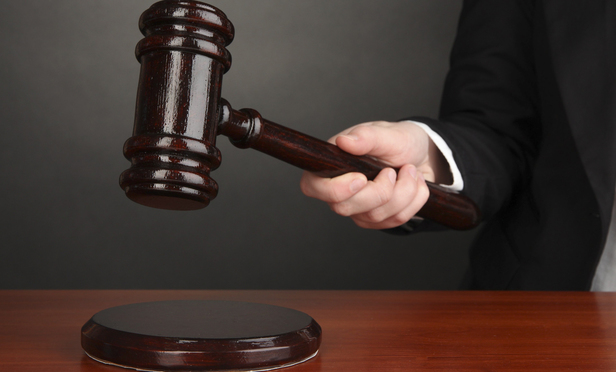Colin E Wrabley

October 16, 2018 | The Legal Intelligencer
Third Circuit Becomes First Appellate Court to Greenlight 'Snap Removals'By filing a notice of removal in federal court after the state-court suit is filed but before the state-court suit has been effectively served, a tactic enabled by modern technology and the ability to electronically monitor more and more state-court dockets on a real-time basis.
By Colin E. Wrabley and Joshua T. Newborn
13 minute read

December 19, 2017 | The Legal Intelligencer
Getting Your Company's Case Removed to Federal Court When Sued in Your 'Home' StateIt's no secret that companies sued as defendants generally prefer to litigate in federal court, not state court. Federal courts are presumed to be more predictable, more transparent, and less subject to local biases than state courts.
By Colin E. Wrabley and Joshua T. Newborn
12 minute read

October 18, 2016 | The Legal Intelligencer
A Close Look at Vacatur of Rulings Based Upon SettlementThe primary goal of any settlement is to resolve the parties' dispute. Often, however, settlement is achieved only after court decisions that are adverse to one or both of the litigants. In these instances, parties may wish to achieve something more—vacating the judgments, erasing opinions from the official reporters, and eliminating whatever binding or preclusive effect those rulings may have in future disputes. Depending upon the jurisdiction, the law may provide a means to accomplish that objective: vacatur of the court's ruling based upon a settlement that moots the parties' lawsuit. Knowing the lay of the land in this little-known corner of the law therefore can—perhaps should—be an important aspect of any settlement strategy where a trial court already has issued rulings in the case.
By Colin E. Wrabley and Brian J. Willett
20 minute read

November 18, 2015 | The Legal Intelligencer
Judicial Internet Research, Fact-Finding: Posner Reignites DebateFacts are crucial—indeed, typically decisive—in litigation. In our civil justice system, determining the facts depends on the litigants, who discover, present and rebut evidence to prove their version of the relevant facts, all in an adversarial system designed to reveal the truth.
By Colin E. Wrabley and M. Patrick Yingling
8 minute read

November 17, 2015 | The Legal Intelligencer
Judicial Internet Research, Fact-Finding: Posner Reignites DebateFacts are crucial—indeed, typically decisive—in litigation. In our civil justice system, determining the facts depends on the litigants, who discover, present and rebut evidence to prove their version of the relevant facts, all in an adversarial system designed to reveal the truth.
By Colin E. Wrabley and M. Patrick Yingling
8 minute read

March 20, 2013 | The Legal Intelligencer
Third Circuit Grapples With Privilege and Appellate JurisdictionA party facing a discovery order, who wishes to protect the confidentiality of privileged information in documents held by its counsel, may need to regain possession of the documents, refuse to produce the privileged documents, and incur a contempt citation before appealing the order under a groundbreaking decision late last year by the Third Circuit.
By Colin E. Wrabley, Richard L. Heppner Jr. and Aditya G. Nagarajan
7 minute read
Trending Stories
- 1ACC CLO Survey Waves Warning Flags for Boards
- 2States Accuse Trump of Thwarting Court's Funding Restoration Order
- 3Microsoft Becomes Latest Tech Company to Face Claims of Stealing Marketing Commissions From Influencers
- 4Coral Gables Attorney Busted for Stalking Lawyer
- 5Trump's DOJ Delays Releasing Jan. 6 FBI Agents List Under Consent Order



